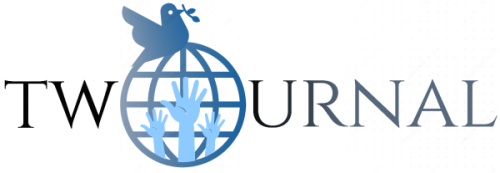[ad_1]
Even though the Chinese economy grew faster in December than before the outbreak of the coronavirus pandemic, the country’s real estate market took on a more pessimistic tone.
While prices for new homes in the nation’s largest cities rose 3.7% last month from a year earlier, the pace of growth has been the slowest since the start of 2016 and prices n ‘increased only slightly compared to November.
The data was a sign of the success of new government measures designed to cool the market and shrink developers. As with asset prices around the world during the pandemic, low interest rates combined with higher savings fueled fears that the Chinese real estate market overheated.
But the weaker growth has also led to the heart of a challenge facing Beijing: how to contain the real estate sector and reduce the financial and political risks it poses without sacrificing its enormous contribution to economic growth.
“The government does not want real estate prices to continue to rise and rise,” said a researcher from a state-run think tank, adding that continued increases were “politically unhelpful. acceptable ”.
With dynamic industrial production and surge in exports, real estate was one of the most notable economic players last year in China, which is expected to be the only big saving in the world for increasing in 2020.
Real estate investments increased by 7% over the full year, compared to an overall increase of 2.9% for all types of fixed asset investment. China’s steel production hit its highest level last year, and residential sales as measured by floor space jumped 15%, according to S&P Global Ratings.
Shaun Roache, an economist at S&P, said real estate led China to emerge from the pandemic, but “will play a smaller role in terms of growth” in 2021. He estimated that the sector was still around 20 to 25% of the economy once its contributions to employment and investment have been taken into account.
A push to reduce property dependency in China is not new. In 2017, President Xi Jinping said the houses were “for living, not for speculation.” According to projections, growth over the past year would only be 3.1% in December 2019, Reuters poll.
But the campaign has gained additional momentum under the coronavirus, alongside a push to pivot the Chinese economy towards domestic consumption and high-end manufacturing under the last five-year plan.
In August, the government informally unveiled its “three red lines” policy, which targeted three balance sheet indicators of leverage among real estate developers. The biggest of them, Evergrande, is considered an important player in the financial system – as well as an emblem of the country’s high debt level.
Beijing has taken further steps in recent weeks to control the sector, specifically addressing debt. At the end of December, new rules limited bank lending to developers and capped their mortgages over their total loans. At the end of the third quarter of 2020, home loans represented 29% of total renminbi loans, according to data from the People’s Bank of China.
Chinese real estate developer Evergrande has become a symbol of the country’s high debt level © Reuters
Zhou Hao, an economist at Commerzbank, said the move was a “significant policy change” because long-term home loans would likely “crowd out” the flow of credit to other sectors.
He suggested that the regulations aim to encourage banks to lend to manufacturing and private companies to “boost long-term growth potential”.
The rules do not necessarily limit home loans, but cap them relative to the total amount of bank loans – meaning that credit linked to real estate can increase further if the total amount of loans increases.
“If you think about. . . scenario of a loan not increasing, it is extremely rare, said Nicholas Zhu at Moody’s in Beijing. “Even when economic activity collapsed in the first quarter, lending increased.”
The extent to which the government will be able to restrict financing flows remains uncertain, especially since real estate often depends on local market dynamics. In the large cities, growth remained stronger than elsewhere and several municipalities introduced their own measures to control prices. But local governments are often financially dependent on land sales to developers.
Andrew Collier, managing director of Orient Capital Research in Hong Kong, said the government was “much more efficient at controlling credit than it was five or 10 years ago.” But he added that the banks and parts of the shadow banking sector had ways to “play with the system”.
The wide availability of money will depend in part on interest rates. While many expect the PBoC increase rates in 2021, others report consistently low or negative inflation rates, which effectively increases borrowing costs.
The challenge of managing interest rates given the unbalanced economic recovery is one explanation for targeting real estate, which Roache said was one of the four main drivers of policy in China. , with monetary, fiscal and macroprudential policy.
“You already have three levers that are tight right now,” he said. “I think if they pull too hard on housing as well, there is a risk that growth will be lower.”
Additional reporting by Sherry Fei Ju and Ryan McMorrow in Beijing
Coronavirus Business Update

How is the coronavirus wreaking havoc on markets, businesses, our daily lives and our workplaces? Stay informed with our coronavirus newsletter.
[ad_2]



